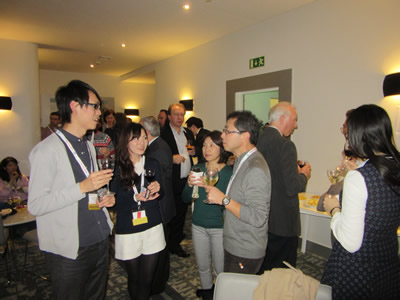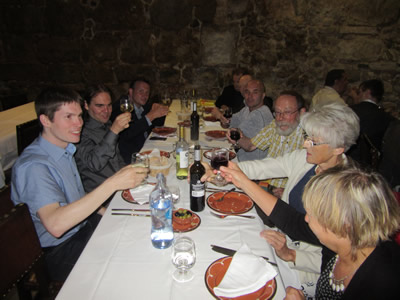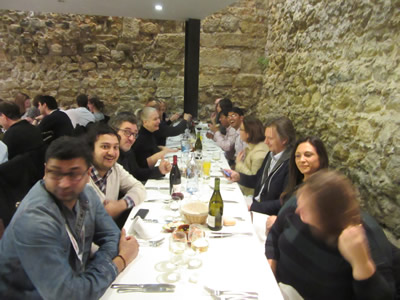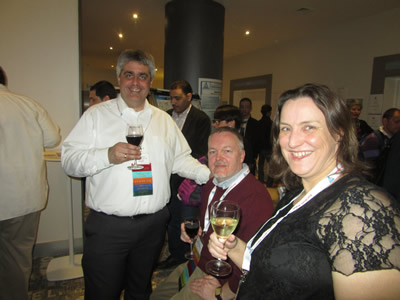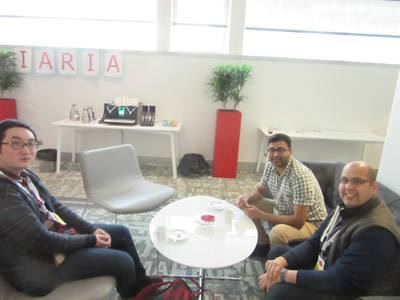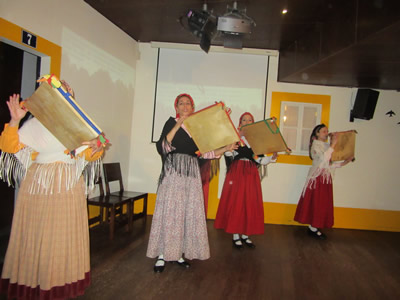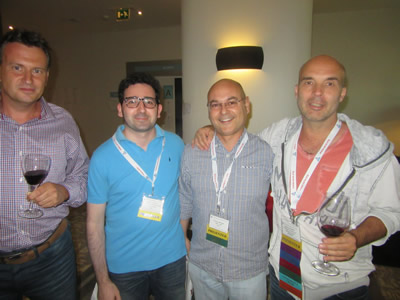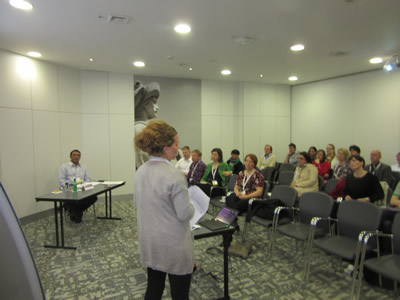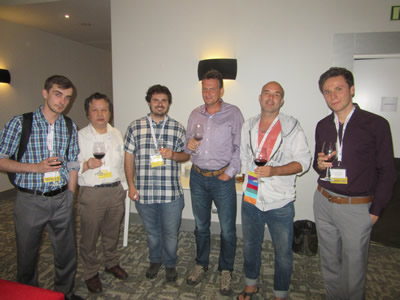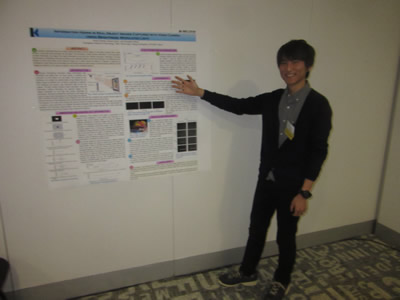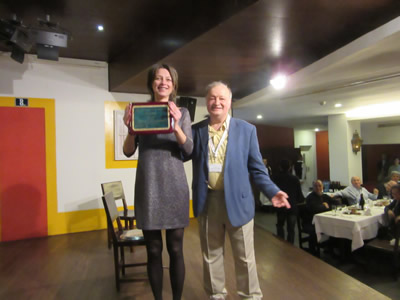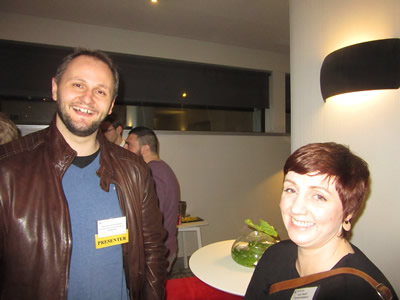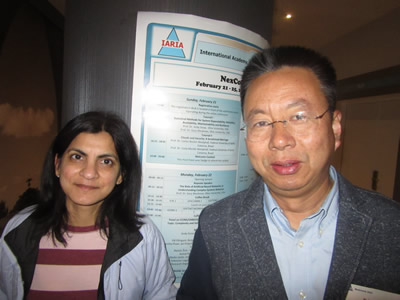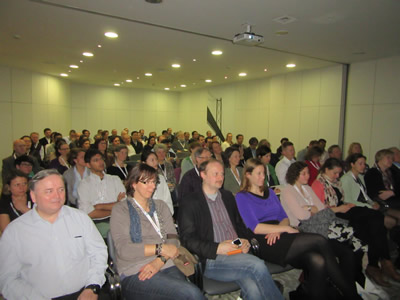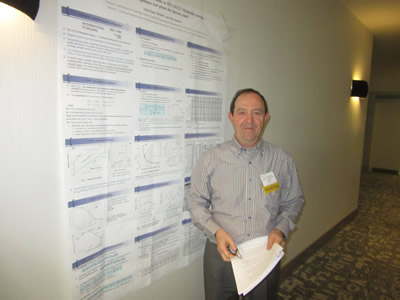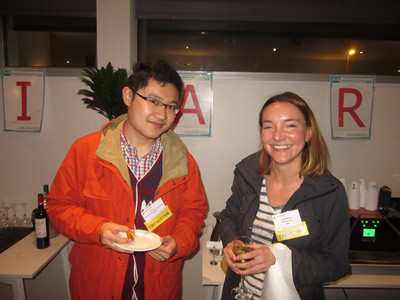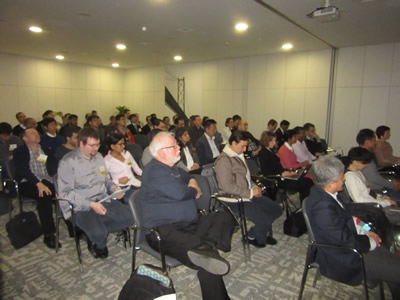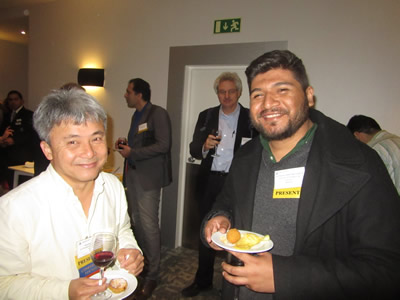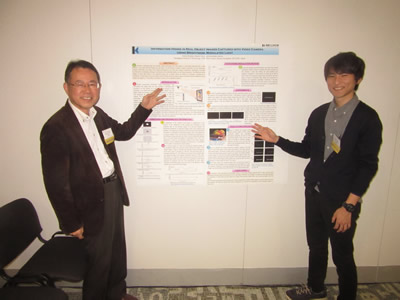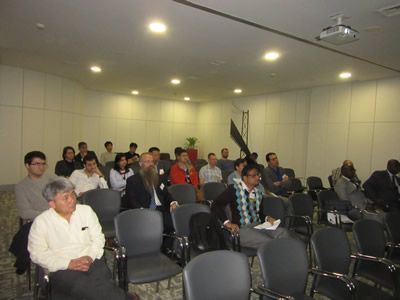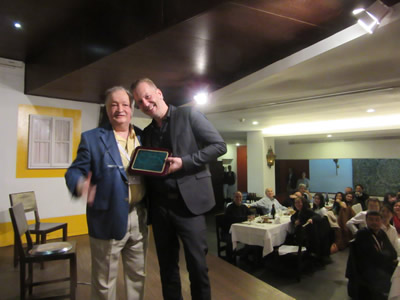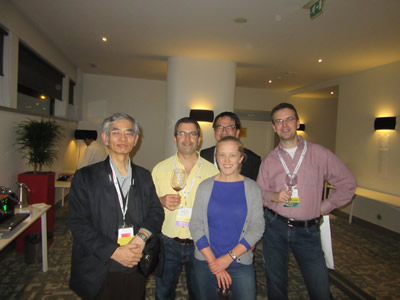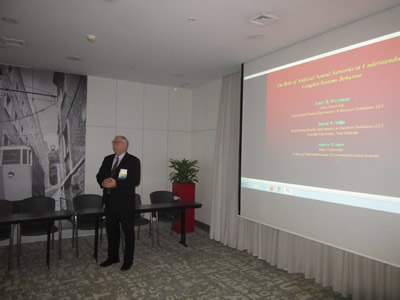CEEE 2026 - The Second International Conference on Global Environment Ecosystem Equilibrium
October 25, 2026 - October 29, 2026
CEEE 2026: Call for Papers
Onsite and Online Options: In order to accommodate various situations, we are offering the option for either physical presence or virtual participation (pdf slides or pre-recorded videos).
The International Conference on Global Environment Ecosystem Equilibrium (CEEE 2026) continues a series of international events covering a large spectrum of topics related to global environmental changes, monitoring and adaptation.
CEEE 2026 convenes global experts, researchers, policymakers, and environmentalists to delve into the critical aspects of maintaining and enhancing our planet's ecological balance. This year's conference focuses on a variety of pivotal themes ranging from the development of sophisticated models, metrics, and statistics for tracking and predicting environmental changes, to devising robust preventive measures that mitigate these impacts. Participants will explore comprehensive strategies for the preservation and continuous monitoring of natural phenomena, along with the latest guidelines and coordinated efforts required for implementing sustainable corrective actions.
In addition to scientific and technical discussions, the conference emphasizes the importance of responsive development, environmental education, and increasing societal awareness. It will address the urgent needs for monitoring pollution, managing forest resources, understanding climate influences on soil resources, and more. The event will also showcase cutting-edge tools, platforms, and technologies that support sustainable ecosystem management. Sessions will cover extensive topics including water management, the interrelation of economic sectors with environmental strategies, land and species management, and the monitoring of critical natural events like climatology, glaciers, volcanoes, and wildfires. This convergence aims not only to share knowledge but also to foster collaboration across disciplines to create a more sustainable future.
We solicit both academic, research, and industrial contributions. We welcome technical papers presenting research and practical results, position papers addressing the pros and cons of specific proposals, such as those being discussed in the standard fora or in industry consortia, survey papers addressing the key problems and solutions on any of the above topics short papers on work in progress, and panel proposals.
Industrial presentations are not subject to the format and content constraints of regular submissions. We expect short and long presentations that express industrial position and status.
Tutorials on specific related topics and panels on challenging areas are encouraged.
The topics suggested by the conference can be discussed in term of concepts, state of the art, research, standards, implementations, running experiments, applications, and industrial case studies. Authors are invited to submit complete unpublished papers, which are not under review in any other conference or journal in the following, but not limited to, topic areas.
All topics and submission formats are open to both research and industry contributions.
CEEE 2026 conference tracks:
Climate Change and Atmospheric Science
Analytics on global warming trends and projections
Observational data collection of aerosols
Metrics for assessing aerosol effects
Climate models including aerosols-clouds models
Models for ocean-atmosphere interactions
Sea level rise and its effects on coastal ecosystems
Sensors for carbon capture and sequestration technologies
Strategies for measurement, analysis and reduction of carbon footprint
Models for extreme weather events forecasting
Impact analysis of the impact of climate change on biodiversity
Sustainable Agriculture and Food Security
Precision agriculture via remote sensing, drones, and IoT applications
Genetic modifications for crop resilience
Strategies for soil health and carbon sequestration
Agroforestry and land use management
Innovative practices in organic and regenerative agriculture
Water management techniques for agriculture
Sustainable livestock management practices
Renewable and Clean Energy Technologies
Advances in hydroelectric power
Geothermal energy technologies
Nuclear energy challenges
Solar and wind energy technologies
Bioenergy and sustainability
Hybrid systems of multiple renewable sources
Energy efficiency and energy storage solutions
Integrating renewable energy into existing grids
Water Resources and Aquatic Systems
Analysis of aquifer depletion and remediation strategies
Monitoring saltwater intrusion in freshwater systems
Sustainable fisheries and aquaculture practices
Innovative wastewater treatment technologies
Flood risk management protective systems
Management and challenges of freshwater ecosystems
Sustainable water harvesting technologies
Detection and filtering of microplastics in marine and freshwater systems
Coral reef restoration and protection
Technologies for water conservation and use management
Water rights and geo-data access and sharing
Impact analysis on dams on river ecosystems
Pollution, Waste Management, and Environmental Toxicology
Detection of emerging contaminants and studies ecological impacts
Air quality monitoring and improvement strategies
Industrial pollution control technologies
Bioremediation technologies for contaminated sites
Health impacts of environmental toxins
Technologies for managing chemical pollutants
Control of noise pollution
Sustainable management solutions of hazardous materials
Air pollution control technologies and policies
Solutions for plastic pollution
Recycling technologies and circular economy
Solutions for electronic waste management
Biodiversity and Wildlife Conservation
Landscape connectivity and wildlife corridors
Conservation genetics and biodiversity banking
Invasive species control and biosecurity measures
Impact of climate change on migratory patterns
Ecosystem services and valuation
Technology in wildlife monitoring and protection
Strategies for habitat restoration and conservation
Case studies on genetic diversity for ecosystem resilience
Monitoring and tracking wildlife trafficking
Urban Planning, Green Infrastructure, and Sustainable Development
Smart city technologies for sustainability
Urban transportation solutions
Sustainable land use and zoning practices
Strategies for green infrastructure and urban greening
Resilience planning for natural disasters
Waste reduction and management in urban settings
Urban ecology, green buildings and sustainable architecture
Urban heat island effect and mitigation strategies
Environmental Education, Awareness, and Communication
Approaches to environmental education
Educational technologies for environmental learning
Citizen science and participatory data collection
Community engagement and participatory monitoring
Digital tools and technologies for environmental education
Sustainable tourism strategies and eco-friendly practices
Corporate sustainability and green business practices
Interdisciplinary approaches to environmental law
Future directions in global environmental governance
Deadlines:
Submission | Jul 06, 2026 |
Notification | Aug 23, 2026 |
Registration | Sep 06, 2026 |
Camera ready | Sep 20, 2026 |
Deadlines differ for special tracks. Please consult the conference home page for special tracks Call for Papers (if any).
INSTRUCTION FOR THE AUTHORS
Authors of selected papers will be invited to submit extended versions to one of the IARIA Journals.
Publisher: XPS (Xpert Publishing Services)
Archived: ThinkMindTM Digital Library (free access)
Prints available at Curran Associates, Inc.
How to submit to appropriate indexes.
Only .pdf or .doc files will be accepted for paper submission. All received submissions will be acknowledged via an automated system.
Contribution types
- regular papers [in the proceedings, digital library]
- short papers (work in progress) [in the proceedings, digital library]
- ideas: two pages [in the proceedings, digital library]
- extended abstracts: two pages [in the proceedings, digital library]
- posters: two pages [in the proceedings, digital library]
- posters: slide only [slide-deck posted on www.iaria.org]
- presentations: slide only [slide-deck posted on www.iaria.org]
- demos: two pages [posted on www.iaria.org]
FORMATS
Only .pdf or .doc files will be accepted for paper submission. All received submissions will be acknowledged via an automated system.
Final author manuscripts will be 8.5" x 11", not exceeding 6 pages; max 4 extra pages allowed at additional cost.
Helpful information for paper formatting for MS Word can be found here.
There is a community provided LaTeX template: the CTAN package iaria (with full IARIA formatting rules, including IARIA citation style, but for providing citation style it is tightly bound to pdflatex+biblatex+biber). In addition, there is also iaria-lite (not bound to pdflatex+biblatex+biber, but compatible with any TeX stack; thus, it cannot provide the IARIA citation formattings, but only the titlepage and content-related IARIA formatting rules). Based on the iaria package, there is a minimal working example as Overleaf template. When you are using the LaTeX templates, please still adhere to the additional editorial rules.
Slides-based contributions can use the corporate/university format and style.
Your paper should also comply with the additional editorial rules.
Once you receive the notification of contribution acceptance, you will be provided by the publisher an online author kit with all the steps an author needs to follow to submit the final version. The author kits URL will be included in the letter of acceptance.
We would recommend that you should not use too many extra pages, even if you can afford the extra fees. No more than 2 contributions per event are recommended, as each contribution must be separately registered and paid for. At least one author of each accepted paper must register to ensure that the paper will be included in the conference proceedings and in the digital library, or posted on the www.iaria.org (for slide-based contributions).
CONTRIBUTION TYPE
Regular Papers (up to 6-10 page article -6 pages covered the by regular registration; max 4 extra pages allowed at additional cost- ) (oral presentation)
These contributions could be academic or industrial research, survey, white, implementation-oriented, architecture-oriented, white papers, etc. They will be included in the proceedings, posted in the free-access ThinkMind digital library and sent for indexing. Please submit the contributions following the instructions for the regular submissions using the "Submit a Paper" button and selecting the appropriate contribution type. 12-14 presentation slides are suggested.
Short papers (work in progress) (up to 4 pages long) (oral presentation)
Work-in-progress contributions are welcome. These contributions represent partial achievements of longer-term projects. They could be academic or industrial research, survey, white, implementation-oriented, architecture-oriented, white papers, etc. Please submit the contributions following the instructions for the regular submissions using the "Submit a Paper" button and selecting the contribution type as work in progress. Contributors must follow the conference deadlines, describing early research and novel skeleton ideas in the areas of the conference topics. The work will be published in the conference proceedings, posted in the free-access ThinkMind digital library and sent for indexing. For more details, see the Work in Progress explanation page. 12-14 presentation slides are suggested.
Ideas contributions (2 pages long) (oral presentation)
This category is dedicated to new ideas in their very early stage. Idea contributions are expression of yet to be developed approaches, with pros/cons, not yet consolidated. Ideas contributions are intended for a debate and audience feedback. Please submit the contributions following the instructions for the regular submissions using the "Submit a Paper" button and selecting the contribution type as Idea. Contributors must follow the conference deadlines, describing early research and novel skeleton ideas in the areas of the conference topics. The work will be published in the conference proceedings, posted in the free-access ThinkMind digital library and sent for indexing. For more details, see the Ideas explanation page. 12-14 presentation slides are suggested.
Extended abstracts (2 pages long) (oral presentation)
Extended abstracts summarize a long potential publication with noticeable results. It is intended for sharing yet to be written, or further on intended for a journal publication. Please submit the contributions following the instructions for the regular submissions using the "Submit a Paper" button and selecting the contribution type as Extended abstract. Contributors must follow the conference deadlines, describing early research and novel skeleton ideas in the areas of the conference topics. The work will be published in the conference proceedings, posted in the free-access ThinkMind digital library and sent for indexing. 12-14 presentation slides are suggested.
Posters (paper-based, two pages long) (oral presentation)
Posters are intended for ongoing research projects, concrete realizations, or industrial applications/projects presentations. The poster may be presented during sessions reserved for posters, or mixed with presentation of articles of similar topic. A two-page paper summarizes a presentation intended to be a POSTER. This allows an author to summarize a series of results and expose them via a big number of figures, graphics and tables. Please submit the contributions following the instructions for the regular submissions using the "Submit a Paper" button and selecting the contribution type as Poster Two Pages. Contributors must follow the conference deadlines, describing early research and novel skeleton ideas in the areas of the conference topics. The work will be published in the conference proceedings, posted in the free-access ThinkMind digital library and sent for indexing. 8-10 presentation slides are suggested. Also a big Poster is suitable, used for live discussions with the attendees, in addition to the oral presentation.
Posters (slide-based, only) (oral presentation)
Posters are intended for ongoing research projects, concrete realizations, or industrial applications/projects presentations. The poster may be presented during sessions reserved for posters, or mixed with presentation of articles of similar topic. The slides must have comprehensive comments. This type of contribution only requires a 8-10 slide-deck. Please submit the contributions following the instructions for the regular submissions using the "Submit a Paper" button and selecting the contribution type as Poster (slide-only). The slide-deck will be posted, post-event, on www.iaria.org.
8-10 presentation slides are suggested. Also a big Poster is suitable, used for live discussions with the attendees, additionally to the oral presentation.
Presentations (slide-based, only) (oral presentation)
These contributions represent technical marketing/industrial/business/positioning presentations. This type of contribution only requires a 12-14 slide-deck. Please submit the contributions following the submission instructions by using the "Submit a Paper" button and selecting the contribution type as Presentation (slide-only). The slide-deck will be posted, post-event, on www.iaria.org.
12-14 presentation slides are suggested.
Demos (two pages) [posted on www.iaria.org]
Demos represent special contributions where a tool, an implementation of an application, or a freshly implemented system is presented in its alfa/beta version. It might also be intended for thsoe new application to gather the attendee opinion. A two-page summary for a demo is intended to be. It would be scheduled in special time spots, to ensure a maximum attendance from the participants. Please submit the contributions following the submission instructions by using the "Submit a Paper" button and selecting the contribution type as Demos. The Demos paper will be posted, post-event, on www.iaria.org.
Tutorial proposals
Tutorials provide overviews of current high interest topics. Proposals should be for 2-3 hour long. Proposals must contain the title, the summary of the content, and the biography of the presenter(s). The tutorial slide decks will be posted on the IARIA site.
Please send your proposals to tutorial proposal
Panel proposals
The organizers encourage scientists and industry leaders to organize dedicated panels dealing with controversial and challenging topics and paradigms. Panel moderators are asked to identify their guests and manage that their appropriate talk supports timely reach our deadlines. Moderators must specifically submit an official proposal, indicating their background, panelist names, their affiliation, the topic of the panel, as well as short biographies. The panel slide deck will be posted on the IARIA site.
Please send your proposals to panel proposal
